FiTI conducts fact-finding mission to Guinea to explore opportunities to revitalise FiTI implementation
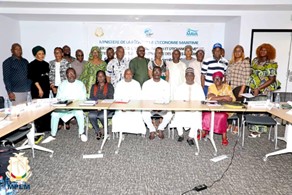
Conakry, 1 and 2 November 2022. The FiTI International Secretariat participated in a multi-stakeholder workshop to inform and sensitise national authorities, professionals and civil society on the importance of transparency in fisheries management in Guinea and to explore the prospect of revitalising the country’s commitment to implement the FiTI.
The workshop, which was organised by the Ministry of Fisheries and Maritime Economy (MPEM) in Guinea – with the support of the Regional Partnership for the Conservation of the Coastal and Marine Zone in West Africa (PRCM) – brought together around thirty participants from the government, professional fishing organisations (artisanal and industrial) and civil society.
The opening ceremony was chaired by Mr Ibrahima Kalil Gueye, Director of Cabinet of the Ministry of Fisheries and Maritime Economy of Guinea. In his opening remarks, Mr Gueye stated that “it is undeniable that in order to guarantee the sustainability of our fisheries resources, the establishment of good governance based on the principles of transparency and inclusive participation of state and non-state actors have become a must for all states today. Since 2016, the Republic of Guinea has been committed to the implementation of the FiTI. Our wish is for Guinea to be a pioneer in terms of transparency in the fisheries sector”.
FiTI’s Regional Coordinator for West Africa, Mr Mansor Ndour, gave a presentation on the FiTI and emphasised the importance of an inclusive, multi-stakeholder driven implementation process for sustainable fisheries management. Furthermore, the various transparency requirements of the FiTI Standard as well as the mandatory sign-up steps for countries wishing to join the initiative were explained.
In the discussions that followed the presentations, participants showed their commitment to transparency in fisheries. It was also clarified that while Guinea expressed a commitment to join the FiTI in 2017, no concrete actions were taken by the Guinean national authorities afterwards, such as appointing a FiTI Lead Ministry or establishing the country’s FiTI National Multi-Stakeholder Group. It was therefore acknowledged by all participants that a new official commitment towards the FiTI needs to be issued by the national authorities in order to give the country a fresh start to successfully complete all the steps to join the FiTI.
In the margins of the workshop, the FiTI also met with H.E. Charlotte Daffe, Minister of Fisheries and Maritime Economy of Guinea and her staff and noted the country’s current efforts to improve the public availability of fisheries information. “Transparency is a priority for the government and the participation of my Director of Cabinet in this two-day workshop is a clear testament for our commitment” said the Minister, who stated that it is her sincere intention to submit Guinea’s public commitment to the FiTI International Board as soon as possible, once approved by the Council of Ministers.
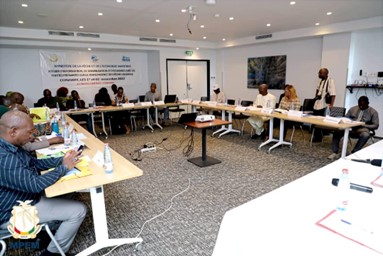
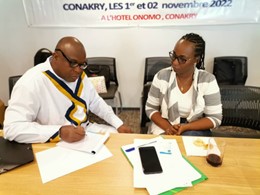
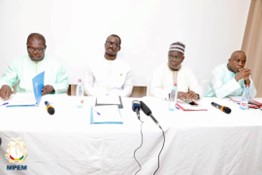
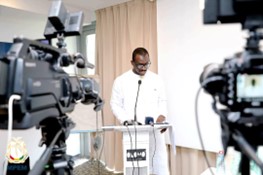
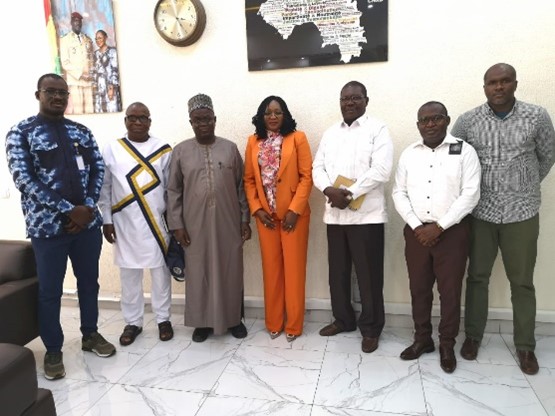
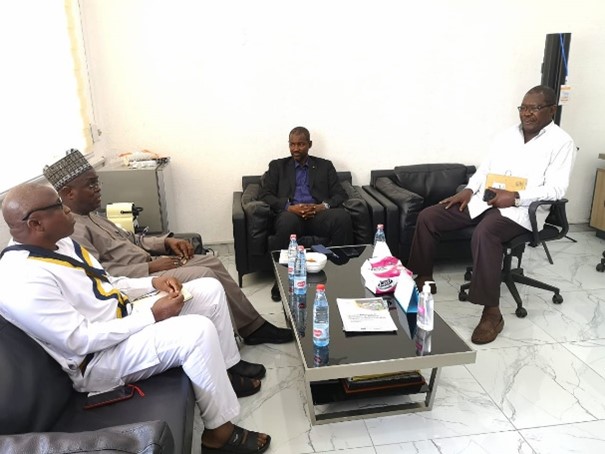
During its 18th meeting in September 2022, the FiTI International Board discussed the current challenging situation in Guinea, in particular after the Economic Community of West African States’ (ECOWAS) recent decision of sanctions on Guinea, due to the fact that the transition government has not made progress towards establishing a transition timeline and organizing elections.
The Board instructed the International Secretariat to conduct a fact-finding mission to Guinea to assess the current environment for transparency and multi-stakeholder participation.
Furthermore, the International Board clearly noted that in case the Guinean authorities would submit a public commitment, this would demonstrates a sincere intention of the country’s government to increase transparency in fisheries management through the FiTI. At the same time, such a commitment should not be misinterpreted as an official acceptance into the initiative. Only when such a commitment is followed by concrete implementation activities (such as the establishment of a FiTI National Multi-Stakeholder Group or the agreement on the country’s first FiTI workplan) and the subsequent approval of the country’s Candidate Application by the FiTI International Board would Guinea be formally recognised as an FiTI implementing country.